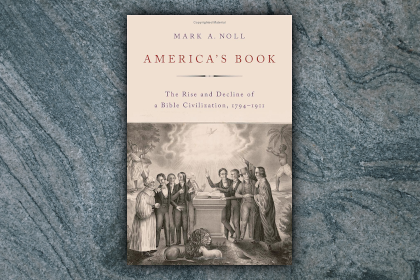The Art of Tacky Preaching?
Image

Steven Mathewson’s work The Art of Preaching Old Testament Narrative1 is a somewhat helpful but ultimately disappointing book. Curiously, only ch. 3-6 (pp. 43-78) deal with narrative.
Mathewson’s discussion of expository preaching as “more of a philosophy than a method” is quite good (pp. 21-22). He appropriately critiques pastors who preach all genres the same way. “The analytical outline approach presses the story into a mold that often works against it, especially when the outline points are alliterated or parallel,” (p. 26).
His review of the building blocks of a narrative plot are adequete (pp. 57-78). However, a pastor will only be a competent interpreter if he is already a reader. So, attempts to explain nuts and bolts about the narrative genre are of limited value. It would be akin to me, the investigations manager for a WA-state agency, trying to explain the basics of ERISA health benefit plans to laypeople and expecting them to do something meaningful with this information. Unless you are already “in the know,” such an explanation would be a waste of time. I fear it is here, too.
Mathewson suggests the pastor ask himself three functional questions when considering application; (1) what does it mean?, (2) is it true?, and (3) so what? (pp. 95ff). I do these during the sermon as rhetorical questions to engage the audience so we “discover” the story together.
His application suggestions are disappointing. He suggests the pastor “build application around the contours” of the vision of God and the “fallen condition factor” (a la Bryan Chapell) of the text (p. 101). I agree with Abraham Kuruvilla that such an approach is inherently generic and can be applied to many other passages—thus implicitly denigrating the concept of plenary inspiration.2 If the inspired author’s intent with the passage, the action he wants the audience to take, does not drive our application then we are tacitly saying the text is useless. Christlikeness predicated on the theology of the passage is the better way.
Mathewson follows Haddon Robinson’s “big idea” approach (ch. 9), which distills the theology into a memorable saying. This approach is an error. Did God really inspire 1 Samuel 17 so Mathewson could fashion a kitsch ditty like, “when God has big business, faith always gets the contract!” (p. 105)? We can distill the application; the author’s imperative from the passage’s context, but we ought not do it to the theology of the passage.
Troublingly, Mathewson suggests our “purpose” for the sermon (again, following Robinson) can be different than the author’s purpose “as long as it is in line with the author’s purpose” (p. 109; emphasis added). His Father’s Day suggestion from Genesis 22 is tawdry and irrelevant.3 Ironically, he doesn’t follow his own caveat; “Would the author be comfortable with the way I am using his story to address this particular situation?” (p. 109). Regarding Mathewson’s butchering of Genesis 22, Moses would perhaps be tempted to call down an 11th plague upon him.
He helpfully suggests pastors craft specific and measurable purpose statements, but his examples are crude and of dubious exegetical warrant (pp. 110-111). For example, applying Genesis 13 means people ought to set lunch appointments to resolve interpersonal conflicts.
Mathewson prefers an inductive, “telling the story” shape for the sermon (pp. 113-115). His discussion of outlines is fine (pp. 122-130), but I confess I have never used outlines. He provides troubling advice for “cold opens” involving first-person narrative, costumes, and triteness that veers well-nigh unto blasphemy.
- He suggests pastors turn their backs on the congregation, then spin about and “become” the character for a brief period (p. 149).
- Mathewson sums up Genesis 22 for an introduction by suggesting the immortal line, “There’s a story in Genesis 22 that helps us understand why God appears to eat our lunch when we’ve asked him for our daily bread,” (p. 148).
- He also recommends pastors begin the sermon “as” the character to introduce the passage. “I always figured that the movie based on my life story would be called The Natural. But a more appropriate title would be The Jerk. My name is Samson,” (p. 150).
Mathewson’s book has some helpful but unremarkable advice recycled from better-known works by other authors. In that respect, his book is what generic Target-brand soda is to Coca-Cola. It’s not bad. It just isn’t particularly great. In addition, his rhetorical suggestions are tacky and cheap. His commendable passion to tell the biblical narrative “as story” has led him astray into irreverence.
Notes
1 Steven D. Mathewson, The Art of Preaching Old Testament Narrative (Grand Rapids: Baker, 2002).
2 Abraham Kuruvilla, “Time to Kill the Big Idea? A Fresh Look at Preaching” JETS 61.4 (2018), pp. 833-834.
3 “Fathers will write out a list of sacrifices they make for their children that steal time or money rightly belonging to God,” (109).
Tyler Robbins 2016 v2
Tyler Robbins is a bi-vocational pastor at Sleater Kinney Road Baptist Church, in Olympia WA. He also works in State government. He blogs as the Eccentric Fundamentalist.
- 19 views
[Paul Henebury]It may be the jingoist in me, but the books written by Americans on preaching are all about technique (owing to the rampant pragmatism in the culture?). The books by British preachers do not focus upon technique but upon what preaching is and the responsibility to proclaim. One exception is J. A. Alexander’s superb Thoughts on Preaching, and perhaps Dabney. But there is no substitute for Spurgeon or Lloyd-Jones or Stott etc, in my book.
Paul, I wouldn’t blame it on pragmatism. I’d blame it on the audience. In America, the audience is supposed to sit there like a stone, and the speaker (whether preacher or teacher) is supposed to entertain the crowd. You have to win them over. By and large, Americans aren’t interested in information, or truth. They want flash, style, and to be entertained. That is why the focus on technique, so that the preacher wins the attention of the audience first. Its a shame.
I know this from years of teaching at a college. No matter the material most students complain you are “boring” when really it is the student who is intellectually lazy and shallow. Same thing for most Christians.
I wish I could argue with you, Mark. I really do. :^)
Seriously, though, I have, though not in a university setting, been dealing quite a bit with the reality of general intellectual laziness and the emphasis of culture over Scripture. Perhaps Paul benefits not only from a general higher esteem of the academy in British culture, as well as the fact that a certain part of the cultural baggage we have in the U.S. simply doesn’t exist in the same way elsewhere. And perhaps a few other things.
Aspiring to be a stick in the mud.



Discussion